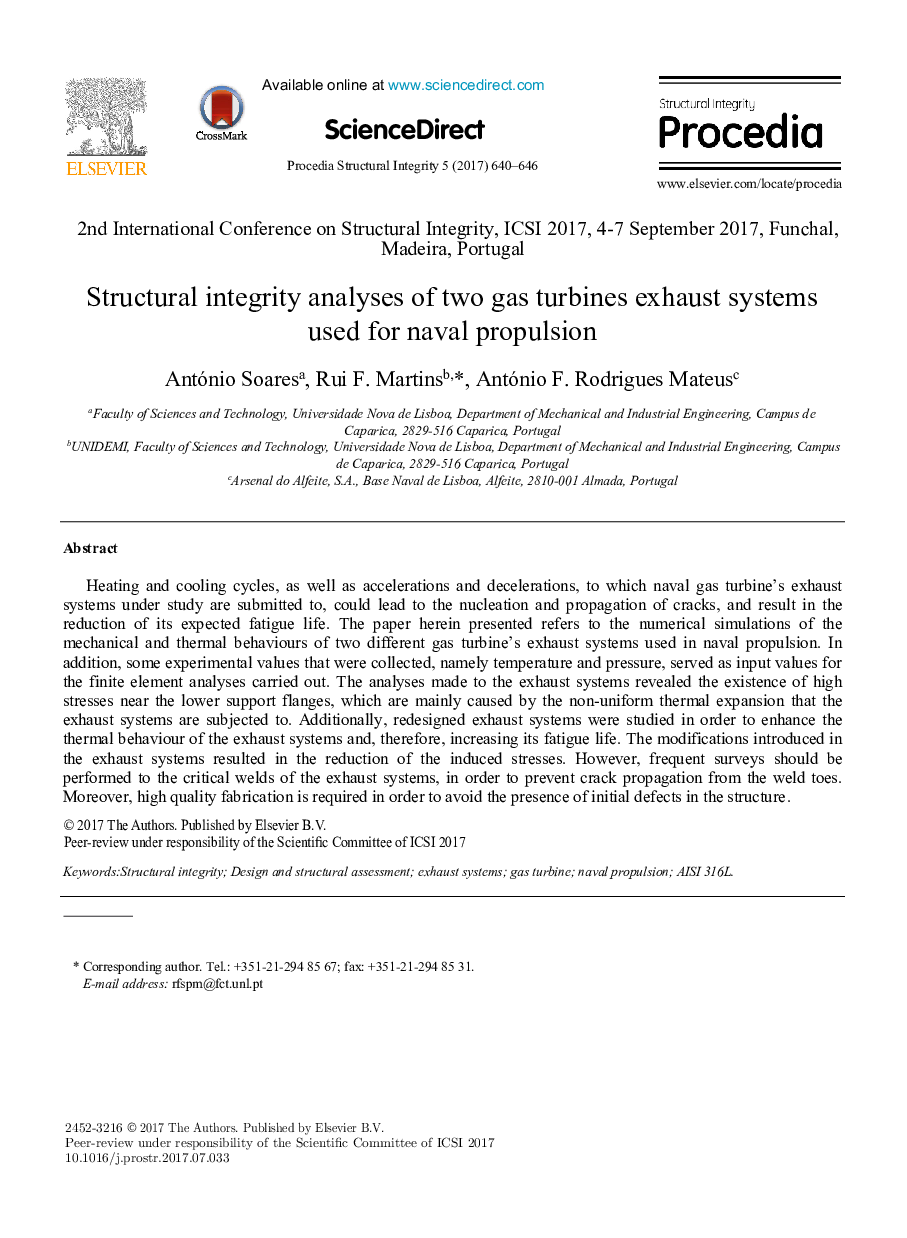| Article ID | Journal | Published Year | Pages | File Type |
|---|---|---|---|---|
| 5452667 | Procedia Structural Integrity | 2017 | 7 Pages |
Abstract
Heating and cooling cycles, as well as accelerations and decelerations, to which naval gas turbine's exhaust systems under study are submitted to, could lead to the nucleation and propagation of cracks, and result in the reduction of its expected fatigue life. The paper herein presented refers to the numerical simulations of the mechanical and thermal behaviours of two different gas turbine's exhaust systems used in naval propulsion. In addition, some experimental values that were collected, namely temperature and pressure, served as input values for the finite element analyses carried out. The analyses made to the exhaust systems revealed the existence of high stresses near the lower support flanges, which are mainly caused by the non-uniform thermal expansion that the exhaust systems are subjected to. Additionally, redesigned exhaust systems were studied in order to enhance the thermal behaviour of the exhaust systems and, therefore, increasing its fatigue life. The modifications introduced in the exhaust systems resulted in the reduction of the induced stresses. However, frequent surveys should be performed to the critical welds of the exhaust systems, in order to prevent crack propagation from the weld toes. Moreover, high quality fabrication is required in order to avoid the presence of initial defects in the structure.
Related Topics
Physical Sciences and Engineering
Materials Science
Materials Chemistry
Authors
António Soares, Rui F. Martins, António F. Rodrigues Mateus,
